Here’s some more information…
Which means…?
We’re seeking to come up with novel research which addresses one of the ‘grand challenges’ – how do we realise the transformational impact of digital technologies on aspects of community life, cultural experiences, future society and the economy?
So, who should attend?
The sandpit is open to everyone, and we do mean all BU staff and PhD students. You don’t need a track record in digital research, though we’d like yo u to consider attending if you do have. It doesn’t matter whether you have a research track record or not. We want anyone who thinks they might have something to contribute (and even those who think they don’t), and who is available all day on 26 January and during the morning of 27 January to come along.
u to consider attending if you do have. It doesn’t matter whether you have a research track record or not. We want anyone who thinks they might have something to contribute (and even those who think they don’t), and who is available all day on 26 January and during the morning of 27 January to come along.
What do I need to prepare in advance? What will the sandpit entail?
Absolutely nothing in advance. During the sandpit, you’ll be guided through a process which results in the development of research ideas. The process facilitates creativity, leading to innovative and interdisciplinary research ideas. These ideas will be explored with other attendees, and further developed based on the feedback received.
What if I don’t have time to think about ideas in advance?
You don’t need to. Some inspiring speakers with a range of backgrounds will be coming along to give you ideas…
What about afterwards? Do I need to go away and do loads of work?
Well… that depends! Tthe sandpit will result in some novel research ideas. Some of these may be progressed immediately, others might need more time to think about. You may find common ground with other attendees which you choose to take forward in other ways, such as writing a paper.
What if my topic area is really specific, such as health?
Your contribution will be very welcome! One of the main benefits of a sandpit event such as this, is to bring in individuals with a range of backgrounds and specialisms who are able to see things just that bit differently to one another.
So, is this just networking?
Definitely not, it is a facilitated session with the primary intention of developing innovative research ideas, which also enables the development of networks. It gives you the opportunity to come up with research ideas which you may develop over time, together with the chance to find common ground with academics from across BU.
So, how do I book onto this event?
To take part in this exciting opportunity, BU academic staff and PhD students should complete the Sandpit Application Form and return this to Dianne Goodman by Tuesday 12th of January – please note the deadline has been extended due to the festive break. Places are strictly limited.
By applying, you agree to attend for the full duration of the event – full day 26th January and half day 27th January.
This event is part of BU’s Interdisciplinary Research Week.

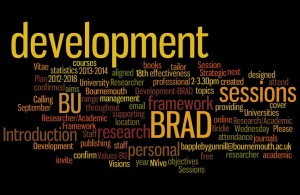
 As part of BRAD week, Dr. Andrew Derrington has been brought in to run a “Case for Support” workshop on Monday 4th of April 2016.
As part of BRAD week, Dr. Andrew Derrington has been brought in to run a “Case for Support” workshop on Monday 4th of April 2016.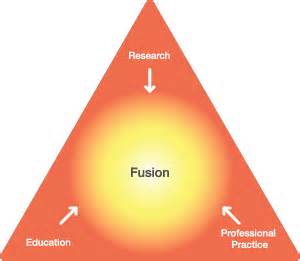 Doing a PhD may appeal to midwives and other NHS health professionals, but it often involves having to make difficult choices. Undertaking a part-time PhD means studying on top of a busy clinical position, but starting full-time study involves stepping away from practice, which may lead to a loss of clinical skills and confidence. The Centre for Midwifery, Maternal & Perinatal Health (CMMPH) at Bournemouth University has come up with a novel solution making it easier for midwives to undertake a doctorate while still maintaining their clinical skills. This approach is highlighted in the latest publication by Dr. Susan Way and colleagues, describing a process where CMMPH collaborate with NHS partners to apply for a match-funded PhD. [1] The first partnership was with Portsmouth Hospitals NHS Foundation Trust (PHT), with later partners expanded to cover the Isle of Wight and Southampton. Currently there are negotiations with Dorset Country Hospital NHS Foundation Trust and Poole Hospital NHS Foundation Trust. Non NHS organisations have also showed an interest with the Anglo European Chiropractic College (AECC) our likely next collaborator.
Doing a PhD may appeal to midwives and other NHS health professionals, but it often involves having to make difficult choices. Undertaking a part-time PhD means studying on top of a busy clinical position, but starting full-time study involves stepping away from practice, which may lead to a loss of clinical skills and confidence. The Centre for Midwifery, Maternal & Perinatal Health (CMMPH) at Bournemouth University has come up with a novel solution making it easier for midwives to undertake a doctorate while still maintaining their clinical skills. This approach is highlighted in the latest publication by Dr. Susan Way and colleagues, describing a process where CMMPH collaborate with NHS partners to apply for a match-funded PhD. [1] The first partnership was with Portsmouth Hospitals NHS Foundation Trust (PHT), with later partners expanded to cover the Isle of Wight and Southampton. Currently there are negotiations with Dorset Country Hospital NHS Foundation Trust and Poole Hospital NHS Foundation Trust. Non NHS organisations have also showed an interest with the Anglo European Chiropractic College (AECC) our likely next collaborator.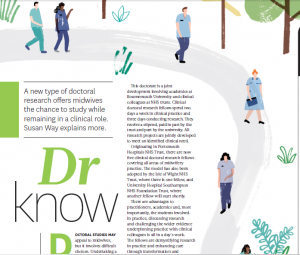


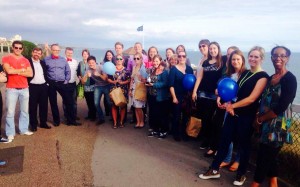


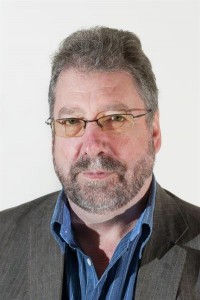

 u to consider attending if you do have. It doesn’t matter whether you have a research track record or not. We want anyone who thinks they might have something to contribute (and even those who think they don’t), and who is available all day on 26 January and during the morning of 27 January to come along.
u to consider attending if you do have. It doesn’t matter whether you have a research track record or not. We want anyone who thinks they might have something to contribute (and even those who think they don’t), and who is available all day on 26 January and during the morning of 27 January to come along.











 FHSS academics teaching in Nepal
FHSS academics teaching in Nepal New weight change BU paper
New weight change BU paper One week to go! | The 16th Annual Postgraduate Research Conference
One week to go! | The 16th Annual Postgraduate Research Conference Geography and Environmental Studies academics – would you like to get more involved in preparing our next REF submission?
Geography and Environmental Studies academics – would you like to get more involved in preparing our next REF submission? Congratulations to three former BU staff
Congratulations to three former BU staff MSCA Staff Exchanges 2024 Call – internal deadline
MSCA Staff Exchanges 2024 Call – internal deadline Applications are now open for 2025 ESRC Postdoctoral Fellowships!
Applications are now open for 2025 ESRC Postdoctoral Fellowships! Horizon Europe – ERC CoG and MSCA SE webinars
Horizon Europe – ERC CoG and MSCA SE webinars MaGMap: Mass Grave Mapping
MaGMap: Mass Grave Mapping ERC grants – series of webinars
ERC grants – series of webinars